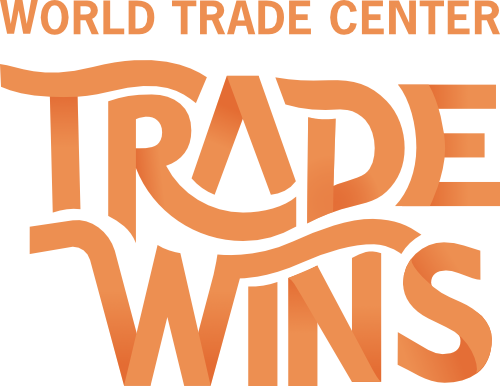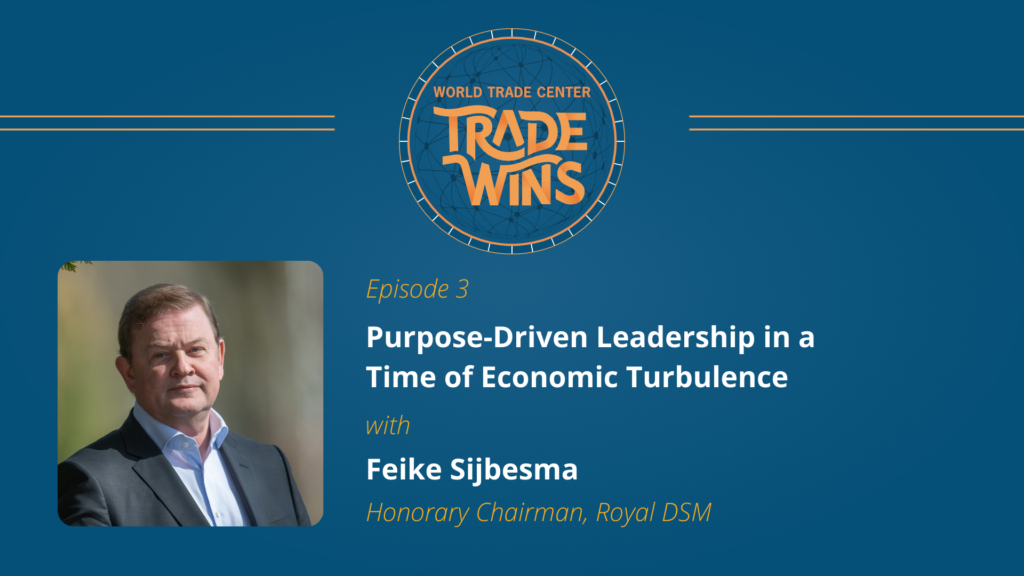Robin van Puyenbroeck 0:07
Welcome to Trade Wins. I’m Robin van Puyenbroeck, your host, and I’m excited to present this special series of seven episodes with a set of unique conversations I had with global leaders from the public and private sector during the WTCA 2021 General Assembly. The conversations happened during the last week of April, with a live virtual audience from 70 countries. This gave me the opportunity to also poll a global audience on some very pertinent questions. Poll results provided not only further food for thought, but also calls to action. Now, let’s get started.
Good morning from New York and welcome to the World Trade Center Association 2021 General Assembly and Business Week, for the first time fully virtual. We are gathering here with over 1,000 participants from more than 70 countries. I’m Robin van Puyenbroeck, Executive Director of Business Development, and I will be your host this week. I’m very excited to get started. It is my pleasure to welcome our first keynote for today Feike Sijbesma, honorary chairman of Royal DSM who will talk to us about purpose-driven leadership in this time of economic turbulence. Now Feike is one of those very few extraordinary business leaders who brought to life and implemented what it means to be a truly purpose-driven leader. His vision was transformative for Royal DSM, a global science-based company in nutrition, health, and sustainable living. He is also a great advocate on the issues of climate change and malnutrition, working with the International Monetary Fund and the UN World Food Programme. For his work he was awarded the UN Humanitarian Award. So Feike, welcome. Thank you so much for being here with us today and I’m handing it over right to you.
Feike Sijbesma 2:00
Thank you very much, Robin. We’ve known each other already for many years, also in your previous roles and appreciate working with you and the World Trade Center organization. I think the World Trade Center organization and all of the participants form a community, a community to do trade with each other, a community which is building on globalization. But let’s go back to that community when it started. Not when the World Trade Center itself started, but already ten thousands of years before, when a predecessor of the World Trade Center started, when the economy basically started. And how did the economy develop? Did they develop by making money or did they develop by building big towers like the World Trade Center is today? No, people came to the conclusion that maybe one is better in catching buffalos and the other is better in growing crops. And if they specialize and exchange goods, then they’re both better off. Basically, more people later on joined this and basically then, the economy developed. We invented gold in order to trade which is when all our issues became too complicated. Then later on money, and later on, we just wrote it down on computers. And later on, we did not do it in our own region, but between countries or even globally. And later on, we developed big towers, like the World Trade Centers in the world from which we do our trade. But what was the origin of all of this? To make money? No. The origin of all of this was to live well here all together. And if one specializes on one thing and the other specializes on the other thing, we’re all better off. When I was growing my career, developing my career, and becoming a little bit older, I was grown up with an economist like Milton Friedman, who told us, “It’s all about making money,” or a celebrity CEO like Jack Welch who said the same, or several corporate governance codes, who said, “It’s all about shareholders.” And I asked myself, “Is that true? Is it all about making money? It’s all about taking care of our shareholders?” Going back to the origin of the economy, most likely that’s not true. Going back maybe to the main purpose of our societies or life, maybe that’s not true either. It is about living here all together. And money is not a goal. Money is a means. But we forgot that maybe a little bit and derailed, so to say, by only focusing on making money. And therefore it is so logical that companies become purpose-driven companies, organizations become purpose-driven organizations, and want to be meaningful for the world. Now, some people say, “Why?” And I turn it around and say, “Why not?” If I go back to the story I just told and the origin, it is very logical that we follow this direction. Since also nobody can be successful or not even claimed to be successful living in a world that fails. If you think further about this, that means that organizations need to work for all their stakeholders, not only the shareholders, but also for their own employees, also for the customers, obviously, also for society at large. If you think further about this, it’s logical that companies create value over three dimensions equally simultaneously – people, planet, profit – take care of society, take care of our ecosystem. And, of course, companies are no philanthropic organizations and, of course, they need to make money, but not as the sole goal. If you go one step further on this, you say, “Okay, what could be the goal?” Well, we have developed global goals in the world, a kind of global strategy. The UN, global goals, or the SDGs, the 17 goals that the world would like to achieve to have a better world here where we can indeed all live happily here together. Not all organizations can, of course, address all SDGs. But you can think with your organizations which SDGs can we address and where can we create value for the world more than shareholders value, but also in order to indeed live here all happily here together.
Feike Sijbesma 6:45
Building on that, CSR is a little bit out. It served its purpose, effort, but no, maybe not anymore. Because you should focus on doing good things for the world in the core of your business. Not that you say, well, we have core business, we make money, but we do some good things on the side. No, no, no. You do some good things in the core of your business. So where are your core competencies? What are your core businesses? And can you contribute to a better world with those kinds of activities? And if not, ask yourself how future proof your organization is. And if so, have a look at what SDGs or what other goals to improve the world you can contribute. And develop an organization which is doing well. Of course, you need to take care of doing well by doing good. Doing that will result in approaching your business a little bit in a different way. And maybe also transforming your company, what we did with DSM, from a global chemical company like Robin was saying to a company focused on health, on nutrition, on sustainable living, and making foods healthier, making energy greener, those kinds of things as the core of our company, as the core to our business. Doing well as a company by doing good for the world. And that combination, I think, will become increasingly important. If you don’t do that, you can ask yourself how future proof your organization is. If you don’t do that, you can ask yourself whether people still want to work for your company in the future or that customers will still buy your products, or whatever. And the World Trade Centers are a clear exponent of this. The idea behind the World Trade Centers is to set up organizations where, in that context, people can do trade with each other based on their own specializations but hopefully as a concept to also do something meaningful for this world. It’s also what we’ve called DSM. We started as Dutch, we are not Dutch anymore, not owned by the state. Dutch state, it’s also not true anymore for decades already. You know, mines, Dutch State Mines. But indeed, the Dutch are gone, the state is gone, and the mines have gone, but the name is still there, the three letters. But some younger people in DSM said, “No, today this stands for ‘Doing Something Meaningful,”’ and that is the DSM of today. So we changed our company into concepts as I just explained. This also asks something from us leaders. It’s not only that I described this for companies, companies are led by people. So this will require us to think about our own values. What do we stand for? How do we want to be recognized later on? Only because of our share price or how we did in the beginning and when we retired or for more, how we contribute to a better world, for example, with the core of our businesses. This means also that you need to be sharp on your own values, what you stand for, especially when you are tested, because everybody has great values when you are not tested. But do you still stand for that when you are tested?
Feike Sijbesma 10:13
Does that mean that courageous leaders who embrace this and become purposeful, that they know it all or that I knew it all? No, of course not. For me, it’s fine to be insecure. Often I was insecure in this whole transformation of DSM. But with guts, insecure with guts to do something. Searching for the right solutions and the right direction, but at a certain moment determine to go with direction. Lifting the anchors, which is scary, lifting your anchors, but otherwise your boat won’t move. Hold your anchors before you immediately let them loose again, because then your boat will still not move. And changing the company, daring to do that. And that is what we tried. And indeed, that requires a lot from us leaders. Leaders who need to have insight – insight in themselves, insight in the people they work with, and insight in the world around us. And insight is often not developed by talking, by giving speeches, which leaders are often asked to do so. But insight is developed by listening, by observing, by reading, by traveling, by meeting other people, and creating based on that vision and connecting with people to realize that vision. And at the end of the day, they care that you deliver results and develop your own organization in the same setting and same framework. In an authentic way, but not that authentic that others sometimes suffer for your own authenticity. So authentic with skills. And if we have leaders who see this purpose for their organization and want to be meaningful and do that based on their insights, and sometimes insecure, but with guts, in an authentic way, but with skills, then they can change their own organization – shape it, reshape it, and play an important role in this world. And last, companies, big companies in the last 50 or 100 years, increased tremendously their impact, maybe their power on the world. And if you have more impact, you have more power, so to say, then you should have also more responsibility. And that responsibility is what I wanted to talk about today – doing something meaningful, doing well by doing good in the core of your business as a logical extension of how the economy ever developed and is now anchored amongst others in the World Trade Centers of the world. Thank you, Robin, please.
Robin van Puyenbroeck 13:11
Well, Feike, thank you so much. I think that’s a great inspiration and I appreciate you sharing that it’s, actually, as a leader, okay to also be insecure as long as you have the guts to push something forward. And I think that’s a point of reflection for us to say, well, it’s easy enough to stand for certain values if you’re not being tested. So to the audience for questions, please put them in the Q&A box. And we’ll have a poll coming up, please make sure to vote. Now the questions are for the poll, “Is purpose-driven leadership important to providing a more sustainable and long term solution to today’s environmental, social, and governance challenges?” And the second question is, “Will you also take action to make your business more purpose-driven?” So back to you, Feike. You raise a key point, like what is what is trade? Is it about making money? Is it about living all together? And that sort of also takes us back to David Ricardo, great English economists saying, well trade is also about creating comparative advantages. It’s about freedom. And it’s about mitigating surpluses and deficits. So for you, as being a purpose-driven leader, it’s like being on a mission where you say, well, doing good needs to be at the core of your business. And you mentioned the acronym DSM stands for “Doing Something Meaningful,” which I thought was very clever. But of course, you also need your stakeholders on board, such as shareholders, financiers, employees, of course, customers. So how do you get your stakeholders on board to support a purpose-driven mission?
Feike Sijbesma 14:49
Thank you all. And yes, by communicating a lot. And in the beginning, when I started as CEO 14 years ago, I said this is a journey for the wrong term and our investor relations said, “Oh, so you don’t want to visit our shareholders frequently anymore.” I said, “I want to visit them even more frequently.” The more I focus on the long term, the less I have to tell on the short term, the more I will discuss with them on the short term. Because I need to take them with us in that whole journey. I need to update on what we’re going to do. And the same with our own employees and the same with society at large and the same with our customers. So communicating a lot, sharing what you know, sharing what you don’t know, sharing what you want to do, your vision, and also sharing where your risk and insecurities or uncertainties still are. So communicating a lot and being in dialogue. Because like I said, you need to have a vision, but you need to be connected also with the people who you need to realize your vision. And that is also your financiers or your shareholders. So communicating a lot.
Robin van Puyenbroeck 16:01
That’s a very clear message that communication is key. So in building DSM into more a purpose-driven company, sort of, what were, sort of, your major obstacles or challenges that you had to overcome in achieving that goal?
Feike Sijbesma 16:15
Well, a lot. We needed to have the guts to divest the businesses we didn’t want to be in anymore. And we didn’t believe that we can be successful in the long run, but on time. And normally companies wait to divest those businesses until they are worth nothing. And then you have no proceeds to acquire or to build new things. So you need to change your company on time. And that’s difficult because some of my predecessors said, why are divesting this business, why are you doing, this is still making money? Sure. And that’s the reason why I do it today. So that is one. Second, it needs to be discussed with the people who were in your position before, because they might see it as a difficult thing that you change the company. But also your own internal people, also, that is a challenge. In our case, they were good at cost leadership. And now we are in a new game where innovation and market drivenness is much more important. But the top was good in the old game, therefore, we made it to the top. We needed to change that. So, yeah, we need to touch, we needed conviction, we needed to change culture, we needed to change leadership. So a lot of challenges. A lot of challenges.
Robin van Puyenbroeck 17:31
Yeah, I can only imagine the changes that you had to work through. Maybe on a slightly different subject. As we’ve all been living through this COVID pandemic in the past year, and, of course, you’ve been very much involved also with the Dutch government in response there. So where do you see that this crisis will cause a more lasting and sort of a disruptive impact on society, basically on how we live our lives and how we conduct business?
Feike Sijbesma 17:57
Well, the world is being confronted with the benefits of its own success, but also the adverse effects of its own success. The globalization and World Trade Centers of course are an important exponent in globalization. And globalization is a logical consequence of what I thought about the economy. You specialize and then you trade. And then you even do it across borders. And globalization brought prosperity for many countries and billions of people, but not for all countries and not for all people in all countries. And those who did not benefit are angry or disappointed. And they will vote differently or raise their voice in a different way. So we need to make our globalization much more inclusive than we did so far. Secondly, we create an adverse effect with our consumption patterns which we have today in our manufacturing systems on our climate. So we need to make it more circular, which is not easy because that needs a redesign of our value chains. We need to reduce emissions, also, sometimes not easy. And I think during the last year we have seen some of those elements of people who are suffering out of globalization, are not benefiting or later on that we get another pandemic from climate which we need to address today. And I think next to all the benefits and all the great things that we have seen and have created, we have also created the adverse effects and we have the responsibility to address those as well.
Robin van Puyenbroeck 19:38
Yeah, you mentioned inclusiveness in global trade, which is, of course, extremely important. But you also mentioned climate change, which I know is a topic close to your heart. So do you think, are we collectively going to be able to make the measures necessary to fight climate change? And do you view the reengagement of the United States in this debate as a game changer?
Feike Sijbesma 19:59
Yeah. The stepping in of the United States making it back in again is, I think, very important. China is catching up, so it’s very important. But we need to conclude also that Five Years After Paris for our journey for a couple of decades, Five Years After Paris, we’re already not on track. So there’s more to be done. We cannot say that we can automatically trust that we are coming there. Companies need to step up, countries need to step up, we need to reduce our emissions. We have this whole race to net zero by 2050, with all the intermediate steps. Maybe carbon pricing could be of help. Transparency on emissions and the financial consequences could be of help. So that is important. Next to that, many developing countries are asking not only to put effort in climate mitigation, but also climate adaptation, because climate change is for many already affect today in the food production, in the infrastructure, in cities, in water, etc. So we need to become also more resilient to the climate change we see already today and that counts maybe stronger for developing countries, not on track, doing great things, but not yet fast enough, not yet enough in total.
Robin van Puyenbroeck 21:20
So a lot of work ahead of us. So I’d like to also briefly touch upon your work in fighting malnutrition, Feike. You took many initiatives with DSM with the World Food Programme. So for the audience, can you maybe share an example of where you were able to make the most impact?
Feike Sijbesma 21:40
Well, we started already 15 years ago with helping the World Food Programme of the United Nations with enriching their food with vitamins, minerals, nutritional ingredients that we do not only take care of people to stay alive and get the carbohydrates but stay also alive healthy with the right nutritional value. And working on that over the years we also saw, hey, what are we doing in Africa or in Bangladesh, we are importing enriched, nutritious, fortified food. But that is not the solution. So what we started in Africa is a big initiative Africa to improve food, asking many, at this moment 130,000, farmers. Everything you grow, we buy locally. We process it locally. We started in Rwanda, now expanding to Kenya and Ethiopia for the local population and getting out that factories. Already 2 million people out of stunting. So locally sourced, locally produced for the local population. And these kinds of initiatives, I think, are at the end needed. Because you cannot solve the problem by only importing and providing the right foods, but also helping the local population to grow their own nutritious food.
Robin van Puyenbroeck 23:00
Yeah, yeah, absolutely. Let’s maybe go through some questions here coming in. Question, Feike. What do you think is the impact in this environment of globalization where people working from home and at a distance? What’s the impact on leadership?
Feike Sijbesma 23:17
It’s a good question, because I think you need to interact to develop your own leadership. And, of course, we interact now via Zoom, but we don’t touch each other. Sometimes it’s difficult to look totally in each other’s eyes even via Zoom, to feel, to sense. It becomes a little bit more formal. Some people like it say, “The meetings are more efficient, bump immediately to the root cause and to the issue and then the meeting is finished.” But at the end, to develop yourself, you need also to have interactions. And last year was not the easiest to have those interactions. So I think it’s important that we get back to that. Maybe we don’t need the traveling and the number of meetings that we always had, the results of something good that we learned. But we need for our own development also to go back to, partly, to all those situations before because you need to develop yourself, you need to learn, you need to learn from your own mistakes. It’s never a problem to fall down and to make a mistake. It’s how you stand up again and how you interact with other people, how you test your own values when you feel you are in the corner. Do you still stand for your principles? Where are you in your decisions? Do you preach A and do you do that also A or do you sometimes do B out for pragmatic reasons and therefore lose your credibility, etc, etc. So I think this was a difficult year to develop leadership. On the other hand, it was also a challenging year to develop leadership. So there will also be people who developed themselves due to this very challenging situation. In one board we tried to do every six weeks a virtual cup of coffee, where we discuss everything except the business for half an hour. Sometimes soccer, sometimes other things. And the first meeting sounds a little bit, yeah, strange, like, what are we doing wasting our time? And some people said, “Yeah, like we did normally when we were in the office at five o’clock or whatever?”
Robin van Puyenbroeck 25:28
At the coffee machine.
Feike Sijbesma 25:29
Was that a waste of time? And others, “That’s not a waste of time.” It was interacting with each other, learning each other and that is what we are missing now. So we find sometimes these kinds of tools as well.
Robin van Puyenbroeck 25:42
I think, Feike, we should start a global campaign to promote the coffee corner culture again because I could not agree more. That’s where I also met the most amazing people at the workplace. It’s just those conversations, interactions during the break at the coffee machine. So I think many of us out here are missing that human interaction. So let’s maybe take a final question here, which I thought was interesting. It’s a question about the notion that there’s so many billionaires out there in the world, so much wealth has been concentrated. So can those people where the wealth is so concentrated, can they really make a difference for the poor, for helping the situation of inequalities in the world? Do you think those very few people can actually, if they would want to, make a real difference?
Feike Sijbesma 26:32
Oh, yeah, for sure. If you look at what the Gates Foundation is doing, of course, it’s really exciting and they really contribute to the world. Or what maybe the Earth Fund of Jeff Bezos in the future can do. So I think those philanthropic organizations of rich people are very important. But I would not only count on that and I would not only believe in a model of learn, earn, and return. I believe also in a model that during earning you return, and not only later on. So if you put your purpose in the core of your business, then you make a return at the same moment to the world. And therefore I would like to add to the model of learn, earn, return – learn, earn by returning at the same moment as a model. At DSM, we tried to achieve that and become a really purpose-driven organization, helping the world in terms of nutrition, in terms of green energy, etc. And the same time during the years that I was there, we almost quadrupled our share price. So it is possible to make that even to your business and income model. Then I think certain years ago, and Robin you and I discussed this in the past, people said to me, “What is it? Doing well for the world or doing well for your share price?” And I said, “Both.” Guy said, “What do you choose for?” “I think both.” “Agh, they are mutually exclusive.” “I don’t think so, but okay.” Today, people say, “Okay, you’re right. They can go hand in hand together.” And I say, “Listen, in 10 years or 30 years from now, they will go, they must go hand in hand together. Otherwise, people won’t work for you anymore, they don’t buy your product anymore, you lose your license to operate globally, your organization isn’t future proof, and you run into difficulties. The world is really changing, not only from a consumer point of view or an employee point of view, but also from an investor point of view.” I think I see a change here.
Robin van Puyenbroeck 28:44
This is a very fine message, Feike, and I like to learn, earn, and return which is something I’m definitely going to think about more. So thank you so much. Let’s just see what the poll gave us. And it’s a whopping 90% of respondents think that purpose-driven leadership is important, providing more solid solutions, not a surprise. So that is a great answer. And also interesting here is to the question, Feike, “Will you take action to make your business more purpose-driven?” I have also a whopping 100% of responses saying yes.
Feike Sijbesma 29:18
Yes!
Robin van Puyenbroeck 29:19
We drove home a message here. So, Feike, thank you so much. I really appreciate you being so generous with your time and for sharing your vision here with us, which I’m sure will already have made an impact. Well, it does it here by our poll. So thank you so much, Feike.
Feike Sijbesma 29:34
Robin, thank you very much and always a pleasure, especially for WTC.
Robin van Puyenbroeck 29:39
Thank you so much. And I’ll see you in the Netherlands for a coffee at a coffee corner sometime. I hope you enjoyed this special episode from our General Assembly. Make sure to tune in for all of the episodes. Thank you for listening.
